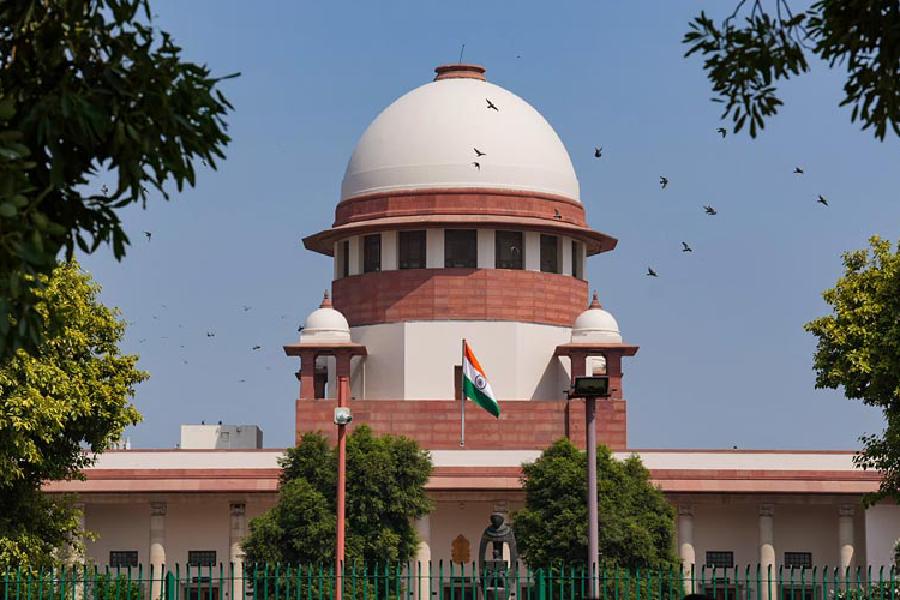The Supreme Court on Tuesday posted for October 31 the hearing of a batch of PILs challenging the Centre’s 2018 Electoral Bonds Scheme, which critics say gives unbridled powers to anonymous donors to make donations to political parties without any accountability.
A bench headed by Chief Justice of India D.Y. Chandrachud initially suggested that the matter may be referred to a seven-judge constitution bench that is to hear from October 12 issues related to what constitutes a money bill.
The bench, which included Justices J.B. Pardiwala and Manoj Misra, gave the option after attorney-general R. Venkataramani suggested that the matter may be referred to the seven-judge bench on the definition of a money bill.
However, advocates Prashant Bhushan and Shadan Farasat, appearing for some of the petitioners, said they would prefer that the matter was not linked to the money bill as the court should decide the constitutional and legal validity of the electoral bonds before the general election in 2024.
Farasat said electoral bonds were bearer bonds which a person can hand over only to a political party.
“Earlier there were disclosure requirements, now it has been done away with. Now a political party has to only disclose the total amount of money received from donors,” Farasat said.
He said neither the recipient nor the donor needed to disclose their actual identities.
Bhushan submitted that if the constitution bench can decide the matter of the money bill within two months, then it can also take up the issue of electoral bonds.
CJI Chandrachud said he would not be able to set a timeframe.
Senior advocate Sanjay Hegde, appearing for some of the petitioners, said the scheme had set a dangerous precedent where the source of funding can be anonymous.
He said an Indian investment company that may have several upstream and downstream firms with a haze on the actual owner may get money through round-tripping routed through so-called donations to political parties.
The bench later appointed advocate Neha Rathi as a nodal counsel for facilitating the common compilation of all petitions and documents to be placed before it on October 31.
If necessary, the hearing may continue on November 1, Justice Chandrachud said.
Besides the Association for Democratic Rights (ADR) and the CPM, certain individuals have challenged the validity of the electoral bonds introduced by the NDA government through amendments to the Finance Acts of 2017 and 2016, both passed as money bills. The amendments, according to the petitioners, have opened the doors to unlimited political donations.
The ADR, the main petitioner, had in 2021 alleged that the ruling BJP had received more than 60 per cent of the total electoral bonds issued till date. The ADR had claimed that electoral bonds worth more than Rs 6,500 crore had been sold, with the majority of donations going to the ruling party. It had also said that almost 99 per cent of the electoral bonds purchased are valued between Rs 1 crore and Rs 10 lakh, which suggests that large corporations, not individuals, were purchasing them.











